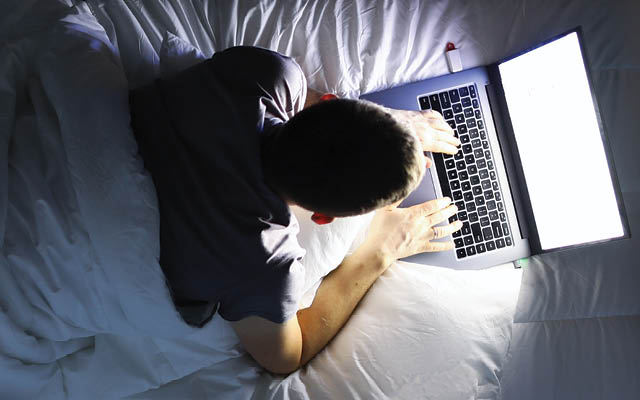Digital devices are wonderful tools. They enable us to work from home, stay connected to loved ones near and far, and keep ourselves regularly informed. Still, using them is a relatively new experience for our mammalian brains, and they can influence our overall mental health. These are just a few of the ways they can affect us:
Screen Fatigue
If you’re reading a long article on your tablet or laptop, you’ll notice fatigue and a gradual loss of focus. Scrolling, scanning, and surfing all require your eyes to rapidly change focus in a way they’re not designed to do. Each time you scroll down on a post, for example, your eyes have to readjust.
The effect is even stronger when you’re reading on a cellphone, which demands still more from your eyes. There’s also a slight flickering in the background of almost all digital screens. It’s visually undetectable, but it affects brain waves and seems to put the brain into a more distracted state.
Loss of Mental Focus
Constantly changing your visual focus affects your mental focus, too. When you’re rapidly scanning a news feed, glancing at different titles, opening up stories for just a moment and then moving on to something else, you’re quickly changing your brain’s focus. This conditions it for chronic distraction.
Hypervigilance
The brain activity associated with distraction creates an overactivated state. Imagine your body is under actual threat — you automatically start scanning the environment, searching for danger. By quickly scanning the information on your screen, you’re mimicking what your brain does when you’re in danger.
This can happen even if what you’re reading is not in itself upsetting — it’s the physical effect of your eye movements that overactivates your nervous system.
Addiction
The vast majority of our updates and messages are not particularly interesting, but every once in a while something is, and we check them compulsively, just in case. This is exactly how you would train a lab rat to become addicted to something: You don’t reward a behavior all the time; you reward it randomly.
Sleep Disruption
The flickering of digital screens and the blue light they emit (the same type of light used to treat seasonal affective disorder) both help to keep the brain activated. When we’re using our devices right before bedtime, they can keep us awake. What’s more, many of us now sleep with our phones next to the bed, dinging and vibrating all night long.
Disrupted sleep prevents the brain from cleaning itself. During deep sleep, the brain discards the waste products accumulated from a day’s activity.
One theory about age-related dementia is that too many waste products have accumulated in the brain, where they can start to erode normal tissue. So, for long-term memory and cognition, there’s really no substitute for deep sleep, and our devices may interfere with that.
Sleep disruption also has a profound effect on mood. Even a few nights of poor sleep can double your risk of becoming depressed or anxious.
On the flip side, when people struggling with depression are able to successfully regulate their sleep, they improve their chances of recovery more dramatically than any other intervention we’ve seen.
Ways to Regain Control
It is possible to do anything mindfully. Try these interventions to reduce the negative impact of your devices.
Monotask
Be intentional and try to avoid multitasking on your devices. Go to your phone or laptop for one specific purpose, and when you’ve finished, leave the screen behind. Don’t hang around to check just one more thing. That’s how we get caught.
Manage Negativity Bias
Our brains are wired to attend to threats, and we can see it in the way we get hooked by bad news online. So, practice seeking out the things that make you feel a little better or more connected, and try to steer clear of stories that act as emotional triggers.
Linger Longer
Reduce the number of sites you visit and spend a little more time at carefully chosen ones instead. Give yourself five minutes to read something instead of 20 to 30 seconds. You’ll notice a real difference in your state of mind if you engage deeply rather than skipping from one thing to another.
Be a Role Model
If we don’t manage our own screen use, our kids will notice and copy us. We can create positive change in our health and relationships by starting with our own habits.
This originally appeared as “This Is Your Brain on Screens ” in the November 2020 print issue of Experience Life.




This Post Has One Comment
Very informational article and it is very useful for all the readers those who are reading this.